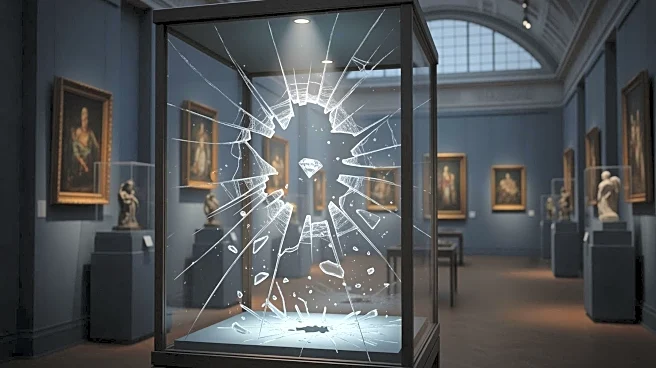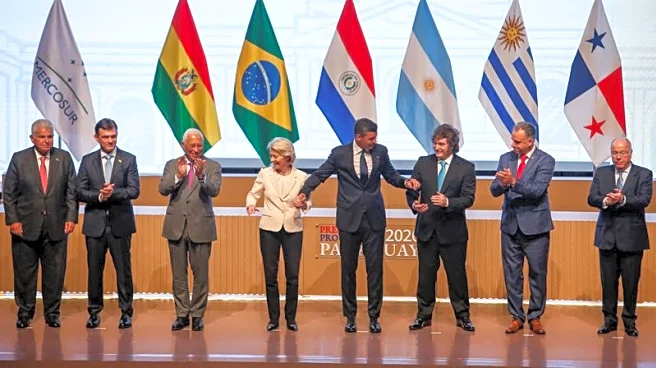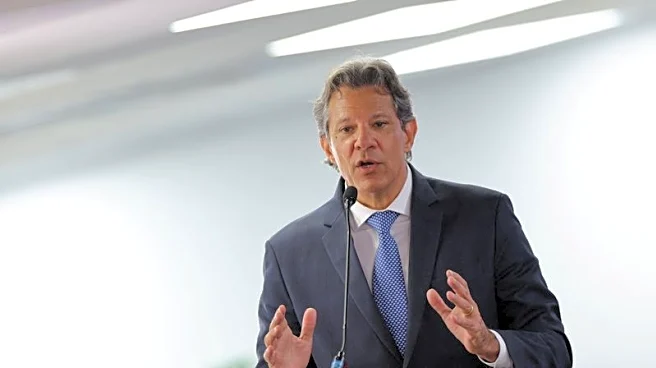What's Happening?
A group of thieves executed a bold heist at the Louvre Museum in Paris, stealing precious jewels in broad daylight. The robbery took place on a quiet Sunday morning, with the thieves using a truck-mounted
ladder to access a second-floor window. They broke into the Apollo Gallery, which houses the royal jewels of France, and made off with items valued at 88 million euros. The heist has left France in shock, with many feeling a deep emotional loss over the stolen cultural artifacts. The thieves managed to escape on motorcycles, leaving behind a truck and some items, including a crown. The French authorities are now racing against time to recover the jewels before they are broken down and sold.
Why It's Important?
The theft of the royal jewels from the Louvre is significant not only for its financial implications but also for its cultural impact. These jewels are considered priceless due to their historical and symbolic value to France. The heist has sparked a national conversation about security measures in museums and the protection of cultural heritage. The incident has also raised concerns about the increasing frequency of museum thefts in France, highlighting vulnerabilities in security protocols. The loss of these jewels represents a blow to France's cultural identity, and the potential dismantling of the items could mean a permanent loss of historical artifacts.
What's Next?
French authorities have intensified their investigation, increasing the number of police investigators on the case. They are employing various methods, including DNA analysis and surveillance footage, to track down the thieves. The urgency of the situation is heightened by the fear that the jewels may be disassembled and sold, making recovery difficult. The investigation is ongoing, and authorities are hopeful that they can apprehend the culprits and recover the stolen items before they are lost forever.
Beyond the Headlines
The heist at the Louvre has broader implications for the security of cultural institutions worldwide. It underscores the need for enhanced security measures and international cooperation to prevent similar incidents. The theft also raises ethical questions about the preservation of cultural heritage and the responsibilities of museums to protect their collections. As France grapples with this loss, the incident may prompt a reevaluation of security strategies and inspire global discussions on safeguarding cultural treasures.









